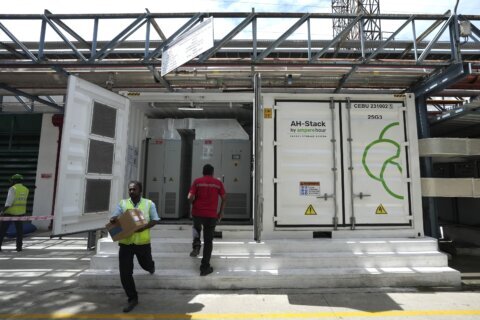With home prices and interest rates rising, it’s become even harder for young people to achieve the traditional American dream of homeownership. A 2022 National Association of Realtors report found the average age of the typical first-time homebuyer last year was 36, up from 33 in 2021 — and up from the oldest age on record.
[READ: These Are the 10 Most Affordable States]
What Percentage of Millennials Own Homes?
As millennials have gotten older, they’ve become more likely to make the move into homeownership. Last year, the share of millennials who owned homes reached 52%, marking the first time the majority of the generation owned rather than rented, according to a RentCafe analysis.
[Read: How to Buy a House.]
The report found that with 32.1 million homeowners among them, baby boomers were the generation most likely to own homes. That compares to 18.2 million millennial and just 2 million Gen Z homeowners.
“It’s important to remember where you are in your lifecycle,” John McCafferty, director, financial planning at Edelman Financial Engines, says. “Things have been pushed out five or 10 years. If you’re 27 and can’t afford a home, that’s fairly normal now, especially if you live in a larger city.”
[Read: Millennial Homebuyers: What the 2023 Housing Market Looks Like for Gen Y and Gen Z]
If homeownership isn’t quite on your radar yet, you can still improve your financial security by prioritizing other money goals. Here’s a look at some key areas you should focus on:
— Reducing overall debt levels. Debt can be a significant drag on your finances over time because the money you pay in interest can’t go toward other goals. Start by focusing on your high-interest, variable-rate debt (such as credit cards) since they’re costing you the most — and could cost you even more if rates continue to go up.
— Improving your credit score. Even if you’re not taking out a mortgage any time soon, improving your credit is still an important financial goal. A good credit score can not only get you access to lower-rate loans, it can mean better insurance rates and even help you get a job in some instances.
— Building an emergency fund. Having a rainy day fund set aside (three to six months’ worth of expenses) can give you financial breathing room if you run into an expensive, unexpected event like a surprise medical bill or layoff. “Once you’ve built up that account, don’t touch it,” Connor Spiro, senior financial consultant at John Hancock Advice in Boston, says. “Ideally, you put it in a high-yield savings account and you don’t dip into it except in a true emergency. Then, you can set up a separate account if you’re saving for other short-term goals.”
— Starting saving for retirement. While retirement may still be decades away, it’s important to start saving for it as soon as possible. Thanks to compound interest, small amounts of money you save in a retirement account now can be worth far more than larger amounts you save later when you’re ready to stop working. Start by putting at least enough into your 401(k) to get any potential employer match.
— Investing in your career. Your future earnings are among the most valuable assets you have. “The most important thing you can do is secure a job you can see yourself in for at least five years,” McCafferty says. “Gain that experience and work on growing your income.” By growing your network and looking for professional development opportunities, you put yourself on a path toward even greater financial stability in the future.
More from U.S. News
How to Financially Prepare for Buying a House
How to Use Your IRA to Buy a House
How to Afford a House in This Market
Homeownership Not a Priority Yet? These Financial Issues Should Be originally appeared on usnews.com







